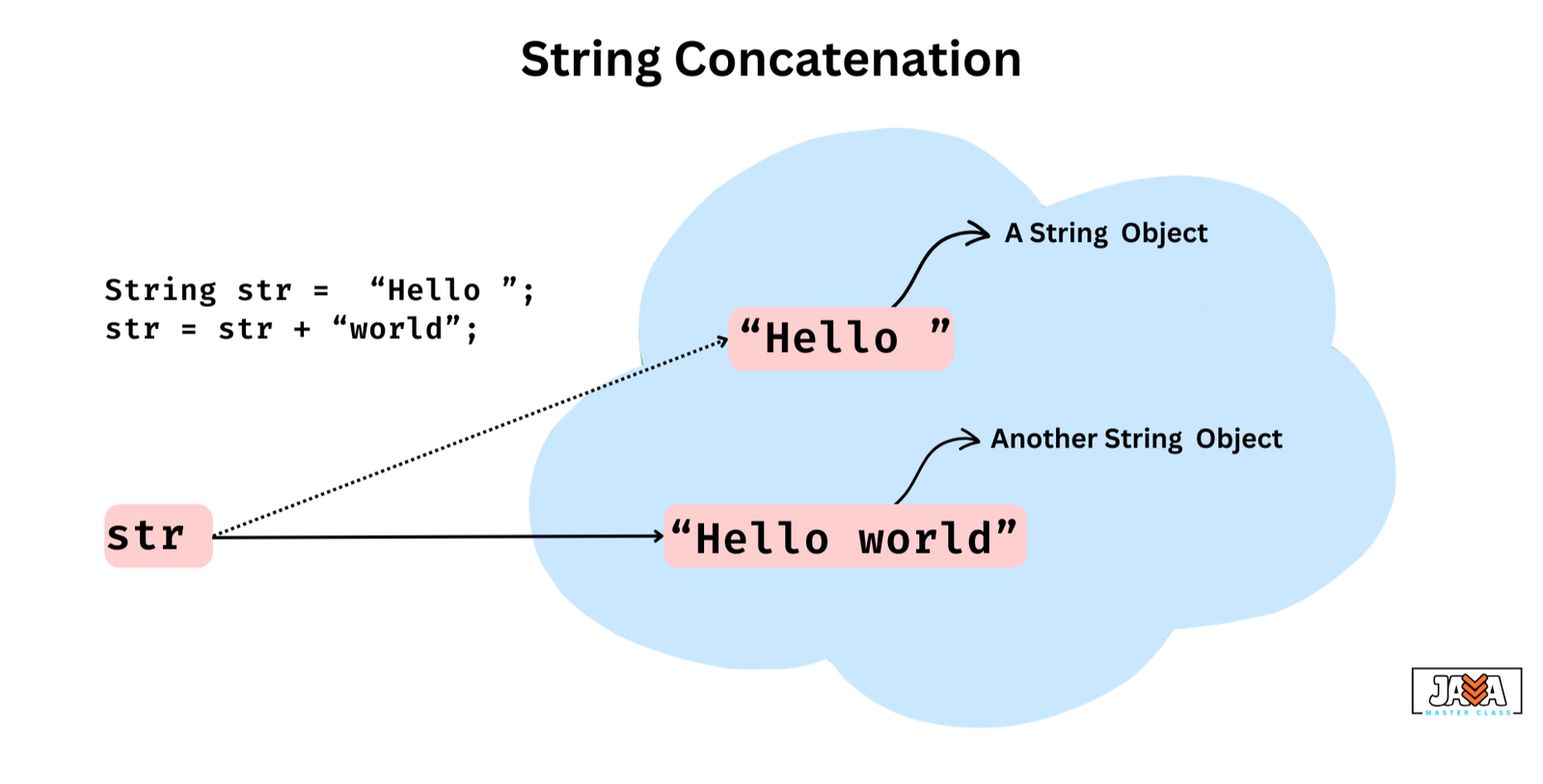In Java, strings are one of the most frequently used data types, whether for displaying messages, manipulating user input, or interacting with data. String concatenation is a common operation where you combine two or more strings to form a single string.

String Concatenation Using the + Operator
The + operator is the simplest and most intuitive way to concatenate strings in Java. When you use this operator, Java internally creates a new string that consists of the concatenated values of the two strings. Here’s how it works:
Example
|
1 2 3 4 |
String str1 = "Hello"; String str2 = "World"; String result = str1 + " " + str2; // Concatenates with a space in between System.out.println(result); // Outputs: Hello World |
In this example, str1 and str2 are concatenated using the + operator, resulting in a new string “Hello World”.
- The
+operator is simple and concise, making it the preferred choice for concatenating a small number of strings. - It automatically converts non-string operands (like numbers) to strings before concatenation.
String Concatenation Using the concat() Method
Java’s String class also provides the concat() method, which allows you to concatenate strings in a similar manner. This method appends one string to another and returns a new string with the combined result.
Example
|
1 2 3 4 |
String str1 = "Hello"; String str2 = "World"; String result = str1.concat(" ").concat(str2); // Concatenates with a space in between System.out.println(result); // Outputs: Hello World |
In this example, we use the concat() method to join two strings with a space in between.
concat()only works with strings, so it doesn’t automatically convert other data types to strings (unlike the+operator).- Unlike the
+operator,concat()is more explicit and requires that both operands be of typeString.
Performance Considerations and String Immutability
While both the + operator and concat() method are convenient for string concatenation, they have important performance considerations that developers need to understand, especially when dealing with large numbers of concatenations in loops or complex operations.
String Immutability
In Java, strings are immutable, meaning once a String object is created, it cannot be modified. Any operation that appears to modify a string actually creates a new string object. This immutability is the reason why both the + operator and concat() method may have performance issues when used repeatedly.
For instance, consider the following loop that concatenates strings:
Example
|
1 2 3 4 |
String result = ""; for (int i = 0; i < 1000; i++) { result += "some string"; // Using + operator } |
Each time the + operator is used in this loop, a new string object is created because strings are immutable. This results in unnecessary memory allocation and can lead to performance degradation, especially when concatenating large numbers of strings.
To improve performance, it’s recommended to use StringBuilder or StringBuffer for concatenating strings in scenarios like loops, where multiple concatenations happen. Both classes allow you to modify a string without creating new objects, resulting in better performance.
